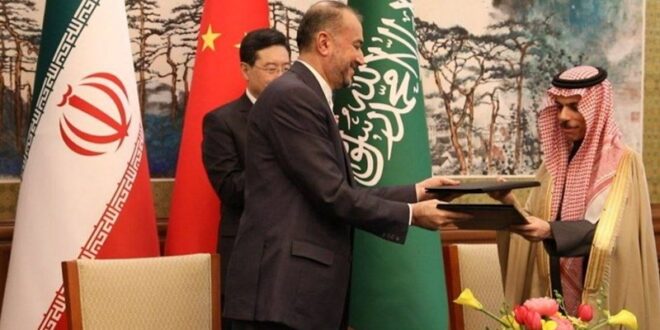Over the past two decades, the US military intervention and hasty withdrawal have unleashed instability and violence across the Middle East.
The US policies have wreaked havoc on the region, resulting in a series of calamities, such as the Taliban’s takeover of Afghanistan after the US-backed government collapsed, Iraq’s descent into chaos and insecurity amid sectarian violence and corruption, Syria’s humanitarian crisis and political vacuum that enabled the rise of ISIS and the involvement of foreign powers, Turkey’s estrangement from NATO and its pursuit of regional ambitions, Iran’s advancement of its nuclear program, Lebanon’s political deadlock and economic collapse, Yemen’s bloody civil war and humanitarian catastrophe, and the proliferation of terrorism and extremism that threaten regional and global security.
Furthermore, the US has ceded its influence and leadership in the Middle East to China, which has expanded its economic and strategic presence in the region through trade, investment, and diplomacy. These developments have undermined the trust of the regional leaders in the US and compelled them to seek alternative alliances and arrangements to protect their interests. This indicates that the US is losing its grip on the Middle East.
The United States has no exclusive right to intervene in the Middle East, but the West has a long history of meddling in the region’s governance patterns since the collapse of the Ottoman Empire. The Western interventions went beyond drawing the borders and boundaries of the region and often involved overthrowing the regimes that did not align with their interests. Therefore, the main concern for the White House has never been the nature of the regional regimes, but their ability to serve the interests of the West and ensure the US’s sole dominance in the Middle East. This factor is now at risk and is forcing the countries in the region to look for new arrangements for their security, economy, and politics. These arrangements aim to resolve internal conflicts, maintain regional stability, and reduce their dependence on the US as an intrusive power. These actions will ultimately lead to diversification of security, economic, and political partners in the Middle East.
The main factor that has driven the Middle East to seek independence from the US is the crisis of trust in Washington. This crisis of trust stems from various issues, such as reducing the number of troops in the Persian Gulf, withdrawing from Iraq and then abruptly from Afghanistan in 202, pulling out of the nuclear deal with Iran, undermining Turkey as an ally on various matters, and endorsing the Abraham Accords without consulting the countries in the region.
Moreover, the inability to resolve the ISIS crisis, the war in Syria and Assad’s survival in power, the security crisis in Iraq, the surrender of the Afghan national government to the Taliban behind the scenes of the Doha Qatar talks, and the failure to respond to the unprecedented attack on Aramco in 2019 and to end the endless regional wars, especially in Yemen, have eroded the confidence of the Middle Eastern countries in the US.
During its unrivaled presence in the Middle East region, the United States not only failed to establish new arrangements to address regional issues and improve the chaotic situation in the region but also became a part of the conflict to advance its own interests at the expense of the devastation and displacement of the people of the region. The country that once tried to transform Iraq into a model of authoritarian modernization and democracy from above, and wanted to conduct a liberal nation-building experiment in Afghanistan, not only fell short of its goals but also worsened the situation further than before. Washington, which has always faced regional adversaries to execute its plans, could not even facilitate relations between regional countries.
The crisis in the relations of the Gulf Cooperation Council with Qatar, the tense relations between Tehran and Riyadh, and Turkey’s attempt to emerge as an Islamic power of the Brotherhood have been among them. Therefore, the United States not only failed to be the savior of the Middle East and provide legal-reconciliation arrangements for the region but also became a harmful and exclusive actor, which cannot have a constructive role for the coming decades. Now, in this situation, the countries of the Middle East have realized that they must establish security arrangements excluding Washington as soon as possible, and if they do not succeed in this process, they will practically become the epicenter of conflict in the crisis of world order competition between China and the United States.
China’s involvement in the Iran-Saudi conflict and its ambition to make the Middle East a key part of its One Belt One Road initiative, which involves huge economic investments, could signal a US withdrawal from the region, where it has achieved little after two decades of war, occupation, and meddling. Some argue that the US presence in the Middle East is still necessary, but they fail to answer why. The countries in the region have realized that they need to diversify their partners and not be seen as US proxies in the new world order. This does not mean becoming dependent on China or any other power, but rather creating a regional order based on cooperation instead of one based on competition, hostility, and American aggression. An order where the US is no longer trusted and will not play a dominant and disruptive role.
 Eurasia Press & News
Eurasia Press & News




